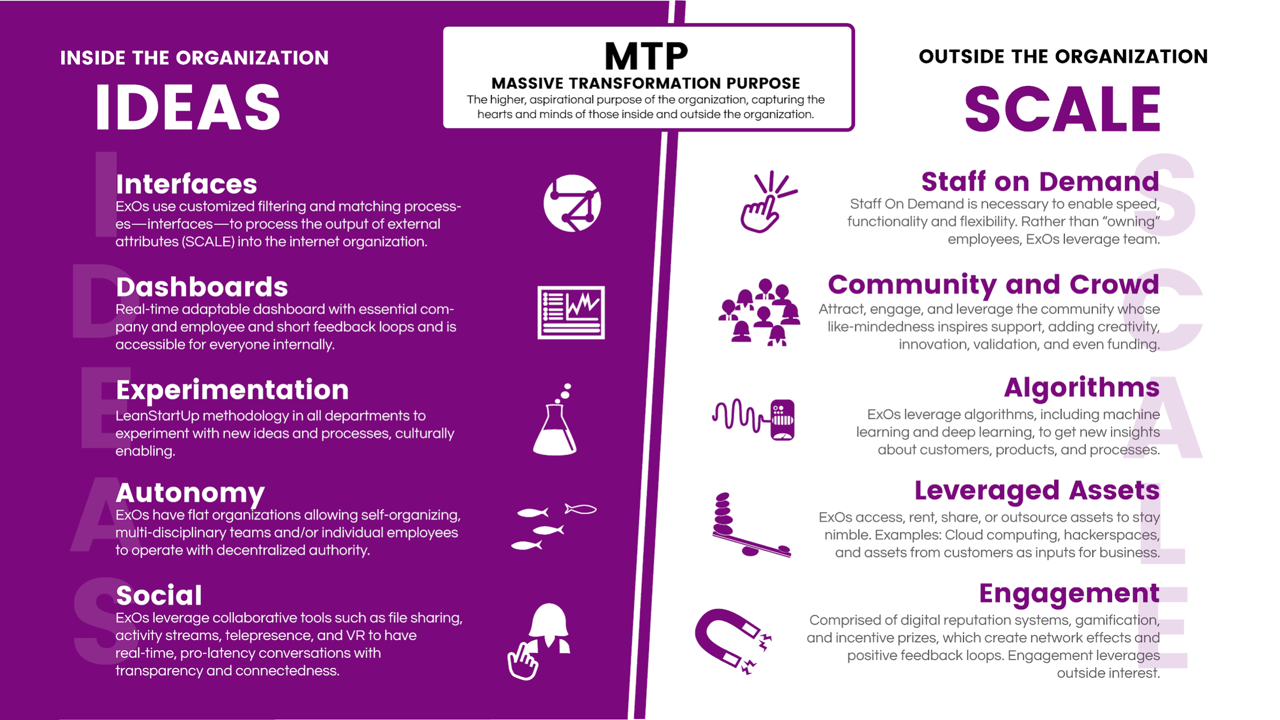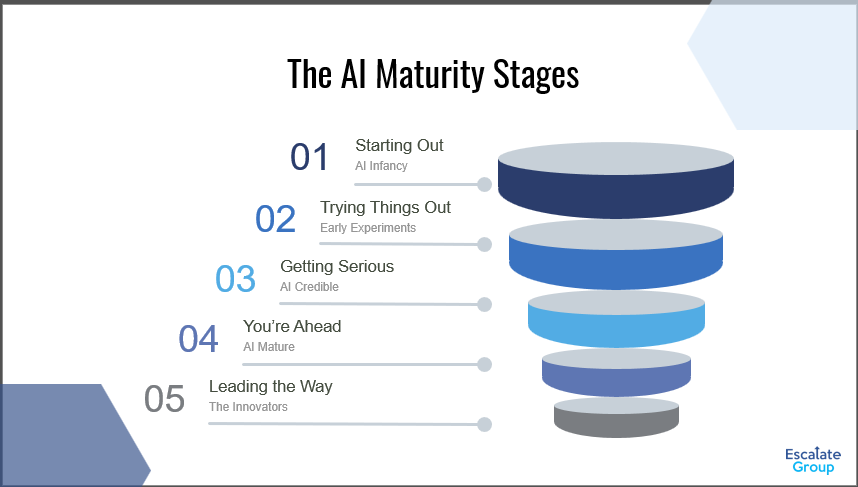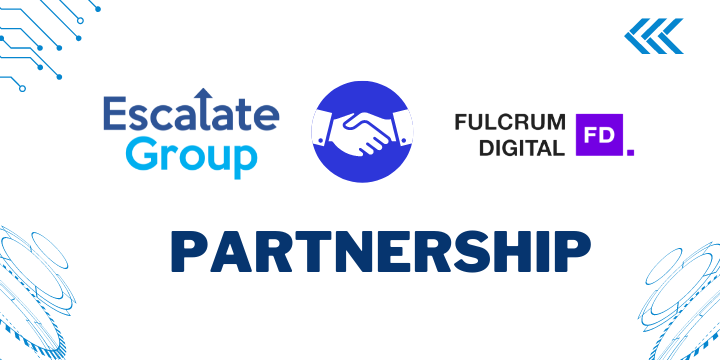Transforming Your Business with AI and Low-Code Solutions: A Practical Guide
June 6, 2024

In today’s dynamic business world, Chief Executive Officers (CEOs) of scale-ups and mid-sized businesses face many challenges ranging from driving growth and profitability to ensuring regulatory compliance and making strategic decisions. To stay competitive, companies must embrace innovative technologies that streamline operations, enhance efficiency, and prepare for the future. This article aims to educate and guide business leaders on leveraging AI and low-code solutions to transform their operations, offering practical insights and actionable steps.
Embracing AI for Enhanced Operational Efficiency
Artificial Intelligence (AI) is not just a buzzword; it’s a transformative force that can significantly enhance operational efficiency. Here’s how businesses can effectively integrate AI into their processes:
Automating Repetitive Tasks
One of the most immediate benefits of AI is its ability to automate repetitive tasks. Whether it’s data entry, invoice processing, or customer inquiries, AI can handle these tasks efficiently and accurately. By automating mundane activities, employees can focus on more strategic initiatives that drive growth and innovation. According to McKinsey & Company, automation technologies, including AI, are rapidly transforming the nature of work and boosting productivity across various industries.
Implementing Predictive Maintenance
For companies with significant equipment and infrastructure, AI-powered predictive maintenance can be a game-changer. By analyzing data from sensors and machinery, AI can predict when maintenance is needed, reducing downtime and avoiding costly repairs. This extends the life of the equipment while ensuring smoother operations.
Optimizing Supply Chain Management
AI can streamline supply chain operations by predicting demand, optimizing inventory levels, and identifying potential disruptions. Machine learning algorithms analyze historical data and current market trends to provide actionable insights, helping businesses maintain optimal stock levels and improve customer satisfaction.
Leveraging Low-Code Platforms for Business Innovation
Low-code platforms are revolutionizing how businesses develop applications, enabling rapid innovation with minimal coding. Here’s how to harness the power of low-code platforms:
Building Custom Applications Quickly
Low-code platforms allow businesses to quickly develop custom applications tailored to their specific needs. From customer relationship management systems to internal workflow tools, these platforms provide drag-and-drop interfaces and pre-built templates that significantly reduce development time and costs.
Facilitating Collaboration Across Teams
Low-code platforms empower employees across different departments to collaborate on application development. This democratization of technology fosters a culture of innovation, as non-technical staff can contribute ideas and solutions without needing extensive coding knowledge. Teams can work together to create applications that address real-world problems efficiently.
Improving Customer Engagement
Low-code platforms simplify the development of customer-facing applications. Businesses can create responsive, user-friendly applications that enhance customer engagement and provide a seamless experience. Whether it’s a customer service chatbot or a mobile app for order tracking, low-code platforms make it easy to meet customer expectations.
Preparing Your Data Infrastructure for AI with Azure
A robust data infrastructure is essential for leveraging AI effectively. Microsoft Azure provides the tools and services to manage and analyze data at scale. Here’s how to prepare your data infrastructure for AI:
Implementing Data Lakes and Warehouses
Data lakes and warehouses are critical for storing and managing large volumes of data. A data lake allows businesses to store structured and unstructured data in its raw form, making it accessible for analysis. On the other hand, data warehouses store structured data that has been processed and optimized for querying. Implementing these storage solutions ensures that data is readily available for AI applications.
Ensuring Data Quality and Governance
High-quality data is the foundation of practical AI. Implementing data governance frameworks helps maintain data accuracy, consistency, and security. Establishing clear policies for data management, including data cleaning and validation processes, ensures that AI models are trained on reliable data.
Utilizing Azure Machine Learning Services
Azure Machine Learning provides a comprehensive suite of tools for building, deploying, and managing AI models. By leveraging these services, businesses can streamline their AI workflows and scale their machine-learning projects efficiently. Azure’s integration with other Microsoft services ensures a seamless experience for data scientists and developers.
Driving Organizational Innovation with AI and Low-Code Solutions

Innovation is critical to staying competitive in today’s fast-paced market. AI and low-code solutions can drive organizational innovation by enabling new ways of working and fostering a culture of continuous improvement.
Developing AI-Powered Solutions
AI can enhance various aspects of business operations, from customer service to decision-making. Developing AI-powered solutions such as chatbots, virtual assistants, and predictive analytics tools helps businesses stay ahead of the competition. These solutions can automate customer interactions, provide insights for strategic decisions, and optimize resource allocation.
Encouraging Employee Innovation
Low-code platforms empower employees to innovate by providing the tools to develop their applications, increasing productivity, and fostering a sense of ownership and creativity. Businesses can uncover new efficiencies and innovative solutions by encouraging employees to experiment with low-code development.
Implementing Continuous Improvement Programs
Continuous improvement is essential for long-term success. AI and low-code platforms enable businesses to implement continuous improvement programs by providing real-time insights and facilitating rapid iterations. Companies can regularly review and refine processes to ensure they remain agile and responsive to market changes.
Ensuring Regulatory Compliance with AI and Automation
Compliance with regulations is a critical concern for businesses. AI and automation can help streamline compliance processes and reduce non-compliance risk. Here’s how:
Automating Compliance Monitoring
AI can continuously monitor compliance with regulatory requirements, identifying potential issues before they become significant problems. Automating compliance monitoring ensures that businesses meet all necessary standards and avoid costly penalties.
Streamlining Reporting and Audits
Generating reports and conducting audits can be time-consuming and resource intensive. AI can automate these processes, ensuring that reports are accurate, and audits are thorough. This reduces the administrative burden on employees and ensures compliance with industry regulations.
Enhancing Data Security
Ensuring data security is paramount, especially when dealing with sensitive information. AI can enhance data security by identifying vulnerabilities and protecting against cyber threats. Implementing robust security measures and monitoring for potential breaches helps maintain data integrity and compliance.
Strategic Decision-Making with AI Insights
Strategic decision-making is critical for business success. AI provides powerful tools to support this process by offering insights and predictions based on data. Here’s how AI can enhance strategic decision-making:
Utilizing Predictive Analytics
Predictive analytics uses historical data to forecast future trends and outcomes. AI-driven predictive analytics can help businesses anticipate market changes, identify potential risks, and seize opportunities. This proactive approach enables businesses to stay ahead of the curve and make informed decisions.
Gaining Real-Time Insights
In today’s fast-paced business environment, having access to real-time insights is crucial. AI solutions can provide up-to-date information, allowing leaders to respond quickly to market changes. Whether tracking sales performance, monitoring customer behavior, or analyzing operational metrics, real-time insights empower businesses to act decisively.
Supporting Data-Driven Decisions
AI can support data-driven decision-making by providing actionable insights from vast amounts of data. By analyzing patterns and trends, AI can highlight opportunities and recommend growth strategies. This data-driven approach ensures that decisions are based on evidence rather than intuition.
Conclusión
In conclusion, AI and low-code solutions offer immense potential for transforming business practices. By embracing these technologies, businesses can enhance operational efficiency, drive innovation, and ensure regulatory compliance. Preparing a robust data infrastructure, fostering a culture of continuous improvement, and leveraging AI for strategic decision-making are critical steps toward achieving long-term success. As business leaders navigate the complexities of the modern market, these tools provide the insights and capabilities needed to stay competitive and thrive. By integrating AI and low-code solutions into their operations, businesses can unlock new levels of productivity and innovation, setting the stage for future growth and success.
Ready to transform your business with AI and low-code solutions? At Escalate Group we can help you harness the power of these technologies and drive impactful change in your organization. Let us partner with you to navigate the digital landscape and achieve your business goals.








